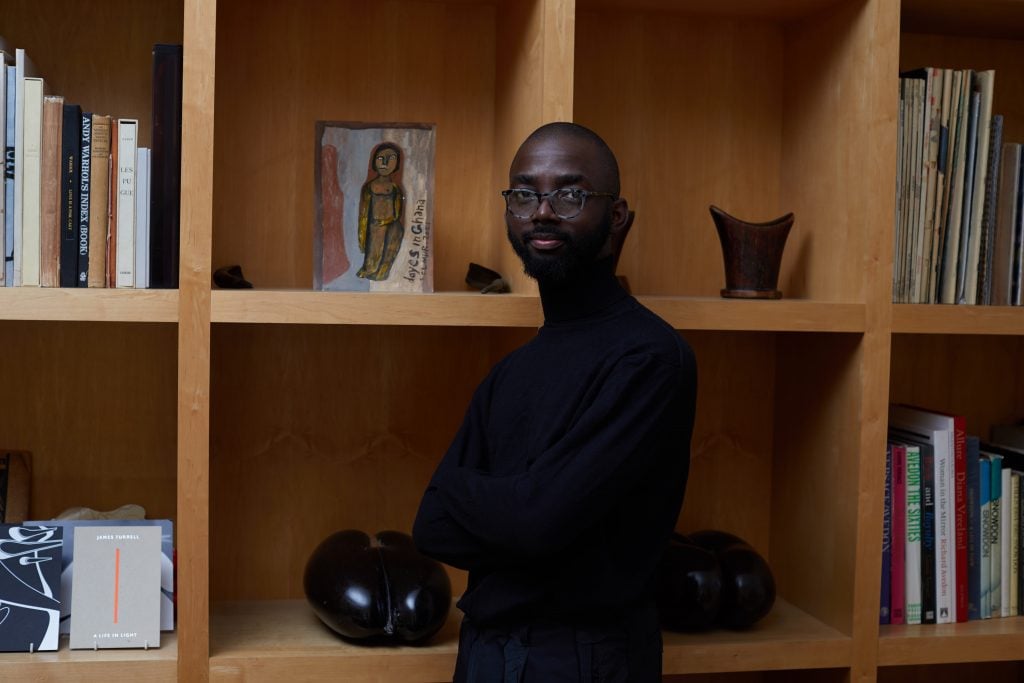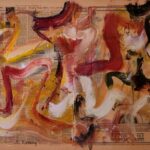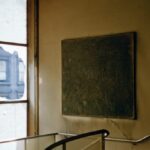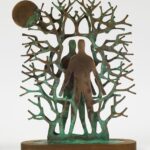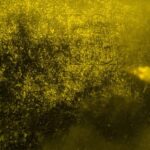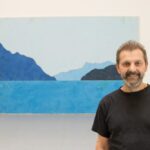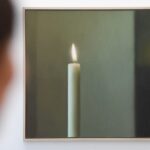The Accra-based artist Foster Sakyiamah is suing Joseph Awuah-Darko, a prominent figure in Ghana’s art scene. The lawsuit, filed in an Accra court on June 24, claims Awuah-Darko did not pay Sakyiamah for several artworks and seeks compensation of $266,527.
In a WhatsApp call, Sakyiamah said Awuah-Darko—an entrepreneur, artist, curator, and collector—discovered his work on Instagram during the summer of 2021. Sakyiamah’s paintings are defined by their vibrantly colored abstract figures and recognizable curved linear patterns. According to the artist, Awuah-Darko offered to work with him through his company, JAD Advisory Limited. In an agreement signed in 2021, seen by Artnet News, Awuah-Darko was appointed as Sakyiamah’s agent “for the promotion, exhibition, and sale of his artwork” for an initial term of 36 months.
After the deal was made, Sakyiamah was invited to join the Noldor Artist Residency in Accra, a program launched in November 2020 by Awuah-Darko. (Noldor is a company under JAD Advisory Limited.) As part of the residency, Sakyiamah was required to create 21 works for the Noldor Residency for which he was paid an initial $3,000 and provided with a studio space. After this initial commission, he claimed he was required “to produce further unquantifiable commissioned works, plus personal commissioned works for Joseph.”
Awuah-Darko sent Sakyiamah’s artist statement in March 2023, at the end of the 36-month term outlined in the agreement, which indicated $338,886.98 had been paid to the artist across 17 cash deposits and bank transfers made between December 2021 and then. The statement, seen by Artnet News, also lists a “net revenue share payable” of $266,527.03.
“When I realized that Joseph was keeping my money—over $200,000—I decided not to give him any more works,” Sakyiamah said.
The agreement also stipulated that JAD would take 40 percent of profits from each sale, after which they would deduct what they call “costs and expenses” from Foster’s intended 60 percent share.
Awuah-Darko did not respond to a request comment.
His lawyer, Frank Owusu, said: “My client intends to file a counterclaim and maintains that Foster Sakyiamah has benefited substantially from the Noldor Residency’s support over the years and that any funds owed are offset by the $338,886.98 that Foster Sakyiamah has already received from the program and sale of his works since he was first represented.”
An artist’s statement shared by Owusu shows the $338,886.98 in payments to Sakyiama, and a net revenue share payable of $251,227.03.
Joachim Baazeng, Sakyiamah’s lawyer, said someone outside of Ghana first reached out to him to represent the artist, stating that they had encouraged Sakyiamah to seek legal representation. Yet, when he met the artist, he barely had the money to pay to file the lawsuit. Sakyiamah finally managed to raise funds to pay for the filing, while Baazeng has agreed to represent Sakyiamah pro-bono and receive his payment after the case has been settled.
“Normally, in Ghana people in Foster’s situation would not challenge such a situation,” said Baazeng. “There’s this perception that if you are fighting with a wealthy man, it is better not to fight because you may end up wasting your time. Many of these artists are from rural backgrounds. They are painting to survive.”
Presently, Sakyiamah’s works are being sold by various dealers on Artsy in the range £30,000 to £40,000. The artist said he knew nothing about the online sales.
As early as June 2021, controversy circulated among the Ghanaian art scene over the amount of works Noldor residents were asked to leave behind. In an Artnet News report from that same year, some said they were told to leave behind as many as 21 works, raising concerns over speculation in this still-young market.
In an Instagram post dated to October 5, 2021, Ghanaian artist and former Noldor resident Emma Prempeh shared her debacle at the residency. “There is no artwork without the artist,” she wrote. “I chose a while ago to discontinue my support of the Noldor Residency for this purpose alongside many others. I became aware of many issues around not being able to freely use the materials you want, artists told what type of paintings to make, structural issues, and false promises. This bled into my ability to make work for the show, giving me less than two weeks to make eight paintings.”
Awuah-Darko recently accused Kehinde Wiley of sexual assault in an Instagram post in May this year. He alleged the assault took place during a dinner on June 9, 2021, at the Noldor Artist Residency. Wiley immediately denied the allegations on his own Instagram, calling the claims a “reckless smear campaign,” and shared his own version of events with screenshots of texts between the two men. Awuah-Darko further said on social media that Wiley’s response was “victim shaming” and an attempt to discredit him. No formal legal complaint by either party has yet been filed, although some planned exhibitions of Wiley’s work have been cancelled or delayed.
Follow Artnet News on Facebook:
References: this article is based on content originally published by Rebecca Anne Proctor on Artnet. You can read the full article here.
